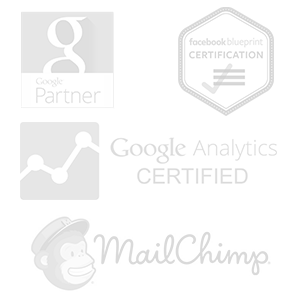
You’re not a known brand yet but heck, you’re excitement at launching your product online is palpable. Entering the eCommerce world is easier than it’s ever been, so taking the online sales plunge is fairly straightforward when you use a platform like WordPress, Squarespace or Wix. Perhaps the scariest part is that you’ve invested so much time and energy – and a lot of money – in getting set with inventory that is either going to delight your target market or gather dust.
Digital marketing agencies generally know that Amazon is a behemoth and has become the go-to search place for product searches and, obviously, sales. In fact, last quarter Amazon reported having 310 million active customers. It’s a no-brainer for brands that have built up years of brand equity in, for example, electronics, because of the decline in brick & mortar channels.
Here’s the caveat if you’re launching your brand: If you sell on Amazon, it can exponentially help your chances for sales revenue but you’re not really building your own business.
Here’s 4 Reasons Why Selling On Amazon May Be Bad For Your Business:
1. Amazon Can Suspend (Or Close) Your Account
It’s true and according to WebRetailer, happens frequently. So the very first thing to ask yourself is – “If I start my eCommerce business and for any reason Amazon suspends my account, can I afford a complete shutdown of my sales?” Amazon reserves the right to close accounts for everything from safety concerns of products to infringements of copyrights and more. If you look at the current terms of Amazon Seller Performance Measurement, if you don’t meet the following targets, you can be shut down:
- Order defect rate: < 1%
- Pre-fulfillment cancel rate: < 2.5%
- Late shipment rate: < 4%
2. Posting Your Products On Amazon Means You Have Less Time To Spend On Your Site
You’re trying to build a business with a branded product. If you’re wanting to have your product show up on the first page of search results, while simultaneously selling on Amazon, it means that you’re splitting your resources. More specifically, if you’re spending your time posting products on Amazon and maintaining their listings, you’re not spending that time search engine optimizing your own site, meaning your site may fail to rank.
And remember, Amazon won’t link from their product listings to your website. They want the shopper to stay within their sales channel, so it’s unlikely that your website’s traffic will grow directly through Amazon.
Related: How To Tell Your SEO Sucks in 5 Seconds
3. Amazon Is Not A Branded Community
As a Toronto branding agency, we tell our clients that building a strong brand often starts with your website. This is the central part of your online ecosystem with key digital marketing efforts coming through video, social media and more. So imagine this: you’re at a party in second year University. You see a hilarious cat meme t-shirt that someone is wearing and you go up and ask where they got it from. They say Snorgtees. So you go online and buy one yourself from that website. Now imagine you go up to the person and they say, “I bought it on Amazon!” So now your product has been reduced to an Amazon search for “t-shirt, cat meme”… now see how much shows up for the search instead of a branded t-shirt like Snorgtees. The user is inundated with a bunch of t-shirts with cat memes and yours is nowhere in sight.
4. You Don’t Own Your Customers
You’ve launched your own site and you’re selling loads of product – but only through Amazon. Congratulations, you’ve built an Amazon storefront and an Amazon business! You can contact buyers through Amazon with access to their name, shipping address and phone numbers but… no emails. This may not seem like the biggest deal, but most digital marketing agencies would disagree. Without customer emails, sending an enewsletter is out of the question as well as the capability to target your email list with other products from your brand. In short, if you own your website, the customers and their data are yours. On Amazon, the buyers of your products are Amazon’s clients.
Does It All Suck Or Should I Still Sell On Amazon?
The start-up costs are low and Amazon has an immense, loyal customer base that is primed to buy – especially Amazon Prime members like myself. It can ramp sales quickly, the trust factor for purchasing is high, and they can take care of your customer service (although I see control over customer service to be an opportunity to reinforce good branding). So in a nutshell, try selling on Amazon.
If you’re involved in eCommerce like I am, look at Amazon as yet another opportunity to A/B test your product sales, service, and marketing. Compare numbers side-by-side, taking into account your gross profit margins from your own site sales vs. those from Amazon along with the opportunity costs of not actually owning those customers that bought through the behemoth.
And Stay Tuned…
I run a small online site using the Shopify platform that sells gourmet cocktail cherries called TheCherryStore.ca (it’s a hobby and testing site that generates low 5 figures per year).
And yes, I am going to launch into Amazon.ca. So over the course of the next few weeks I’ll be setting up my Amazon storefront and will report back the effects on my sales and how the profit margins compare with my current storefront.
Fraser Sullivan, MBA
Director, Client Success + Brand Mechanic
Email: fraser@themarketinggarage.ca
More Tips From A Toronto Digital Marketing Agency:
3 Reasons Why Online Reviews Are Important For Your Business
7 Step Checklist To Create The BEST Digital Banner Ads
The Marketing Garage is an award-winning Toronto digital marketing agency that has extensive experience in cultivating effective digital marketing strategies. We help businesses in many different sectors in Toronto and across North America fix their online marketing and branding. Our data-driven mix of SEO and digital marketing process is like no other.



